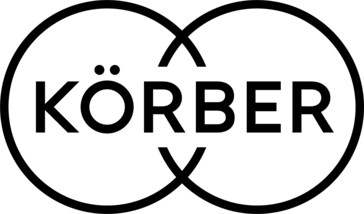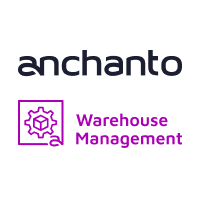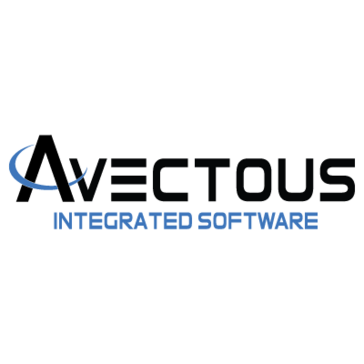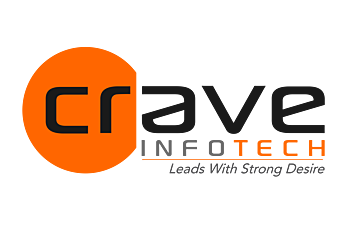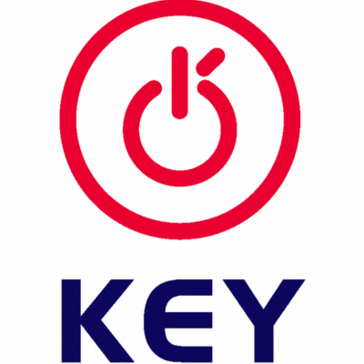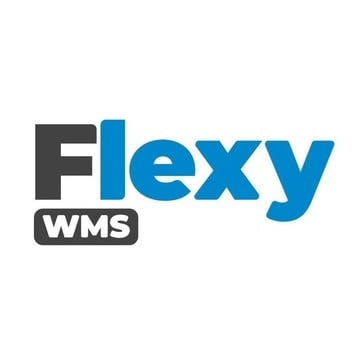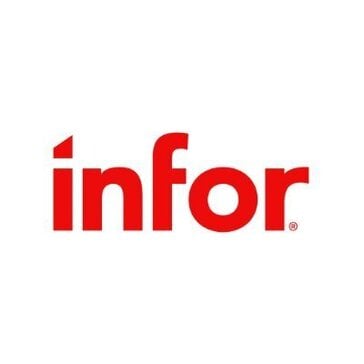Best Warehouse Management Systems
Best Warehouse Management Software At A Glance
G2 takes pride in showing unbiased reviews on user satisfaction in our ratings and reports. We do not allow paid placements in any of our ratings, rankings, or reports. Learn about our scoring methodologies.
- Overview
- Pros and Cons
- User Satisfaction
- Seller Details
ShipHero makes it easy to ship eCommerce with our powerful warehouse management software (WMS). Our cloud-based WMS is perfect for emerging, scaling and high volume brands. Instead of holding you back
- Operations Manager
- CEO
- Logistics and Supply Chain
- Warehousing
- 83% Small-Business
- 16% Mid-Market
6,292 Twitter followers
- Overview
- Pros and Cons
- User Satisfaction
- Seller Details
Cin7 Core is an app that makes enterprise-level inventory management, manufacturing, sales integration, reporting, and automation accessible to all businesses. Leverage the power of multi-module in
- Operations Manager
- CEO
- Retail
- Wholesale
- 88% Small-Business
- 10% Mid-Market
3,056 Twitter followers
- Overview
- Pros and Cons
- User Satisfaction
- Seller Details
Integrated web-based cloud-hosted Warehouse Management System (WMS) & Order Management System (OMS) recognized in Gartner reports, Increff WMS is a comprehensive solution for retail brands to expo
- Apparel & Fashion
- Retail
- 59% Mid-Market
- 21% Small-Business
210 Twitter followers
- Overview
- Pros and Cons
- User Satisfaction
- Seller Details
For 50 years, Epicor has developed purpose-built solutions for distributors. Our unmatched industry expertise about the unique processes and requirements of distributors are reflected in our solutions
- IT Manager
- Wholesale
- Industrial Automation
- 57% Mid-Market
- 36% Small-Business
9,429 Twitter followers
- Overview
- Pros and Cons
- User Satisfaction
- Seller Details
ShipBob is a global fulfillment platform that supports over 7,000 ecommerce brands with a global network of 30+ fulfillment centers across the US, Canada, UK, EU, and Australia. We physically store ou
- Owner
- CEO
- Retail
- Consumer Goods
- 87% Small-Business
- 12% Mid-Market
3,812 Twitter followers
- Overview
- Pros and Cons
- User Satisfaction
- Seller Details
Magaya automates the many tedious, repetitive manual tasks that slow down shipments, waste your time (and your customers’), cost money, and allow errors to slip in. The Magaya Digital Freight Plat
- CEO
- General Manager
- Logistics and Supply Chain
- Import and Export
- 73% Small-Business
- 25% Mid-Market
548 Twitter followers
- Overview
- User Satisfaction
- Seller Details
How can you manage growing pressures for rapid fulfillment, increasing demand volatility and worsening labor shortages — while also controlling your costs to maximize margins? The answer is digital wa
- 58% Enterprise
- 37% Mid-Market
12,515 Twitter followers
- Overview
- Pros and Cons
- User Satisfaction
- Seller Details
Zoho Inventory is cloud-based inventory management software that helps you create and manage both your sales and purchase orders, and track your inventory. You can integrate it with online sales chann
- CEO
- Food & Beverages
- Retail
- 64% Small-Business
- 15% Mid-Market
103,834 Twitter followers
- Overview
- Pros and Cons
- User Satisfaction
- Seller Details
inFlow inventory software keeps costs down so you can increase your profits. Our cloud-based inventory management system helps you stay on top of the business, no matter what team you're on, and no m
- Construction
- 81% Small-Business
- 18% Mid-Market
1,750 Twitter followers
- Overview
- Pros and Cons
- User Satisfaction
- Seller Details
Stord is the leading commerce enablement platform that powers seamless checkout through delivery experiences for brands across all channels. Stord partners with hundreds of brands to grow revenue, red
- Food & Beverages
- Consumer Goods
- 58% Small-Business
- 42% Mid-Market
2,878 Twitter followers
- Overview
- Pros and Cons
- User Satisfaction
- Seller Details
Vinculum is a leading Omni channel SaaS Product company working with Brands, Retailers and their ecosystem partners in transforming their omnichannel journey. Vinculum’s products enable “Any Channel
- Warehouse Executive
- Logistics and Supply Chain
- Retail
- 67% Small-Business
- 29% Mid-Market
853 Twitter followers
- Overview
- Pros and Cons
- User Satisfaction
- Seller Details
Hy-Tek IntraOne WMS: Built for Results-Driven, Modern Warehousing The Hy-Tek IntraOne WMS is a modern, Tier I warehouse and fulfillment platform designed to streamline and automate warehouse operat
- 80% Mid-Market
- 20% Small-Business
- Overview
- Pros and Cons
- User Satisfaction
- Seller Details
The Softeon Warehouse Management System (WMS) provides a platform for optimizing distribution processes, with a broad set of capabilities that comprehensively handle the basics (receiving, putaway, in
- Logistics and Supply Chain
- Information Technology and Services
- 53% Mid-Market
- 31% Enterprise
551 Twitter followers
- Overview
- Pros and Cons
- User Satisfaction
- Seller Details
Fishbowl is the ideal inventory, warehousing, and manufacturing solution designed for small to medium size businesses. Key features include inventory management, material requirements planning (MRP),
- Operations Manager
- Director of Operations
- Wholesale
- Consumer Goods
- 81% Small-Business
- 19% Mid-Market
8,628 Twitter followers
- Overview
- Pros and Cons
- User Satisfaction
- Seller Details
Finale Inventory is an intuitive cloud-based inventory management system that is easy to use while designed to scale to the demands of a growing business. Handle all your stock movements from purchasi
- Consumer Goods
- Retail
- 83% Small-Business
- 17% Mid-Market
1,606 Twitter followers
- Overview
- Pros and Cons
- User Satisfaction
- Seller Details
Odoo Inventory seamlessly integrates all of a company's basic warehouse operations, such as: delivery orders, inventory counts, incoming shipments, automatic packing, scrapping, and transferring, just
- Computer Software
- Information Technology and Services
- 73% Small-Business
- 25% Mid-Market
54,057 Twitter followers
- Overview
- Pros and Cons
- User Satisfaction
- Seller Details
Manhattan SCALE, powered by Microsoft's .NET platform, is a solution for distribution that provides a blend of features, functions and technology for organizations seeking to solve supply chain execut
- 57% Mid-Market
- 36% Enterprise
9,662 Twitter followers
- Overview
- User Satisfaction
- Seller Details
RF-SMART is a global leader in barcoding and mobile inventory management solutions for Warehousing, Wholesale Distribution, Manufacturing, Retail & eCommerce. Leveraging barcodes and data collecti
- 47% Mid-Market
- 40% Small-Business
1,079 Twitter followers
- Overview
- Pros and Cons
- User Satisfaction
- Seller Details
Linnworks is the global growth platform for omnichannel retailers. Power your entire commerce operation from a single platform. With more than 100 integrations (including popular platforms like Amazon
- Director
- Retail
- Automotive
- 84% Small-Business
- 14% Mid-Market
2,735 Twitter followers
- Overview
- Pros and Cons
- User Satisfaction
- Seller Details
Microsoft Dynamics AX is the complete ERP solution for enterprises that provides a purpose-built foundation across five industries (manufacturing, distribution, retail, services, and public sector), a
- Information Technology and Services
- Accounting
- 47% Mid-Market
- 32% Enterprise
14,002,464 Twitter followers
- Overview
- Pros and Cons
- User Satisfaction
- Seller Details
Cin7 Omni is a fully integrated, cloud-based inventory management software and Enterprise Resource Planning (ERP) alternative that streamlines operations across multiple channels in a single platform.
- Retail
- Wholesale
- 90% Small-Business
- 8% Mid-Market
3,056 Twitter followers
- Overview
- Pros and Cons
- User Satisfaction
- Seller Details
Kintone is a no-code business application platform designed to empower non-technical users to create robust applications, workflows, and databases tailored to their teams and organizations. By utilizi
- CEO
- Executive Director
- Non-Profit Organization Management
- Information Technology and Services
- 74% Small-Business
- 21% Mid-Market
2,111 Twitter followers
- Overview
- Pros and Cons
- User Satisfaction
- Seller Details
Using a visual warehouse layout SKUSavvy enables warehouses to operate efficiently across one or many locations with higher efficiency and lower costs than tier 1-2 WMS systems. Our unique approach l
- Retail
- 79% Small-Business
- 21% Mid-Market
- Overview
- Pros and Cons
- User Satisfaction
- Seller Details
The Logiwa Cloud Fulfillment Platform is a fully integrated WMS software and high-volume DTC fulfillment system. With functionality for warehouse management, inventory management, and billing, Logiwa
- Logistics and Supply Chain
- Warehousing
- 81% Small-Business
- 16% Mid-Market
1,605 Twitter followers
- Overview
- User Satisfaction
- Seller Details
Oracle SCM Cloud offers a full suite of applications for companies to manage their supply chain, distribution, manufacturing, inventory management, and fleet.
- Information Technology and Services
- 61% Enterprise
- 32% Mid-Market
822,135 Twitter followers
- Overview
- User Satisfaction
- Seller Details
Oracle Warehouse Management Cloud introduces a new paradigm in supply chain execution solutions; robust extended warehouse management at significantly lower total cost of ownership. It delivers innova
- 54% Mid-Market
- 38% Enterprise
822,135 Twitter followers
- Overview
- Pros and Cons
- User Satisfaction
- Seller Details
PULPO Warehouse Management System offers a cloud-based solution designed to streamline every angle of warehouse operations, from counting, receiving and storing inventory to picking and shipping order
- 79% Small-Business
- 21% Mid-Market
26 Twitter followers
- Overview
- Pros and Cons
- User Satisfaction
- Seller Details
POS, Inventory Management & E-Commerce Solutions. Agiliron is an all-in-one software suite which allows you to manage all orders, inventory and CRM records, from all channels, in one place.
- Retail
- Wholesale
- 92% Small-Business
- 8% Mid-Market
291 Twitter followers
- Overview
- Pros and Cons
- User Satisfaction
- Seller Details
InfoPlus WMS is a web-based warehouse management software solution for 3PLs, eCommerce Retailers, and Wholesalers focused on taking control of overall inventory, warehouse operations and shipping.
- Warehousing
- Logistics and Supply Chain
- 65% Small-Business
- 40% Mid-Market
520 Twitter followers
- Overview
- User Satisfaction
- Seller Details
Manage high-volume warehouse operations with SAP Extended Warehouse Management. The system integrates complex supply chain logistics with your warehouse and distribution processes – delivering the ult
- 62% Enterprise
- 31% Mid-Market
299,880 Twitter followers
- Overview
- Pros and Cons
- User Satisfaction
- Seller Details
Flowspace powers independent fulfillment. The company’s cloud-based OmniFlow software provides real-time visibility into inventory, orders, and fulfillment activity, centralizing all order sources in
- Food & Beverages
- Consumer Goods
- 75% Small-Business
- 25% Mid-Market
420 Twitter followers
- Overview
- Pros and Cons
- User Satisfaction
- Seller Details
The world of Inventory Control is rapidly evolving as organizations are able to obtain more and more insights as to where their inventory is going, the process it takes to get there and the issues tha
- 56% Mid-Market
- 44% Small-Business
915 Twitter followers
- Overview
- Pros and Cons
- User Satisfaction
- Seller Details
For 50 years, Epicor has developed purpose-built solutions for distributors. Our unmatched industry expertise about the unique processes and requirements of distributors are reflected in our solutions
- Wholesale
- Logistics and Supply Chain
- 61% Mid-Market
- 28% Small-Business
9,429 Twitter followers
- Overview
- User Satisfaction
- Seller Details
Take control of your supply chain with Flexport. Accelerate performance and growth for your entire supply chain. Ship to and from anywhere. Track everything. Collaborate with everyone. See what happen
- 73% Small-Business
- 20% Mid-Market
26,815 Twitter followers
- Overview
- User Satisfaction
- Seller Details
Fulcrum is a cloud-based warehouse management, multi-carrier shipping software and ecommerce provider. Each component works together to provide a comprehensive solution for the third-party logistics a
- Warehousing
- 63% Small-Business
- 31% Mid-Market
- Overview
- Pros and Cons
- User Satisfaction
- Seller Details
Extensiv 3PL Warehouse Manager is the leader in cloud-based warehouse management system (WMS) solutions built to meet the unique needs of the 3PL warehousing community. Serving as the backbone of our
- Warehousing
- Logistics and Supply Chain
- 71% Small-Business
- 18% Mid-Market
126 Twitter followers
- Overview
- User Satisfaction
- Seller Details
Körber's K.Motion Warehouse Advantage is an adaptable, process based warehouse management system designed to be tailored to companies' unique business practices. Due to its modular design, users can p
- 54% Mid-Market
- 38% Enterprise
372 Twitter followers
- Overview
- User Satisfaction
- Seller Details
Acctivate Inventory Software is an operational hub for growing small to mid-sized distributors, online retailers, and manufacturers using QuickBooks®. The sophisticated solution promotes collaboratio
- Wholesale
- Retail
- 95% Small-Business
- 5% Mid-Market
6,817 Twitter followers
- Overview
- Pros and Cons
- User Satisfaction
- Seller Details
RFgen Software empowers businesses with flexible mobile barcoding systems to reduce inventory and warehouse productivity issues and increase accuracy. Enabling you to mobilize critical warehouse and
- 88% Mid-Market
- 6% Small-Business
388 Twitter followers
- Overview
- User Satisfaction
- Seller Details
mobe3 is a WMS that thinks of you- not the other way around. The brainchild of our experts who have been developing & working in warehouse commercial grade warehouse management software for ove
- 69% Mid-Market
- 23% Small-Business
- Overview
- User Satisfaction
- Seller Details
Ramco Logistics Software provides an end-to-end digital platform that solves Logistics Service providers' critical challenges, including supply shortages, limited resources, operational costs, surge i
- 44% Small-Business
- 31% Mid-Market
7,858 Twitter followers
- Overview
- Pros and Cons
- User Satisfaction
- Seller Details
Control demand, supply, labor, and automation across your entire network with Manhattan Active® Warehouse Management. The leading cloud-native, evergreen, and extensible WMS in the industry.
- 50% Enterprise
- 50% Mid-Market
9,662 Twitter followers
- Overview
- User Satisfaction
- Seller Details
Flowtrac is a cloud-based or on-premise solution that helps organizations manage their Inventory, Assets, Warehouse, Work In Process, Proof of Delivery, and other Special requirements. Clients include
- 67% Small-Business
- 25% Mid-Market
831 Twitter followers
- Overview
- Pros and Cons
- User Satisfaction
- Seller Details
Cahoot provides eCommerce shipping software and order fulfillment services that power nationwide 1-day and 2-day deliveries at the lowest cost by design. Cahoot offers lower fulfillment fees because i
- Retail
- Consumer Goods
- 92% Small-Business
- 8% Mid-Market
66 Twitter followers
- Overview
- Pros and Cons
- User Satisfaction
- Seller Details
Locad is the logistics engine enabling e-commerce brands to systematically store, pack, ship, and track orders across Asia-Pacific. Our tech platform syncs inventory across online channels and organi
- Retail
- 78% Small-Business
- 22% Mid-Market
- Overview
- Pros and Cons
- User Satisfaction
- Seller Details
The go-to operating system for ecommerce brands. Most ecommerce solutions are either poorly built online tools with no support or ultra-expensive ERPs that are full of unnecessary features. In betw
- Retail
- 86% Small-Business
- 10% Mid-Market
- Overview
- User Satisfaction
- Seller Details
ClarusWMS. Simple. Powerful. Innovative. Looking to take your business to the next level? ClarusWMS is the perfect solution! ClarusWMS provides a fast-growing customer base including logistics provid
- 67% Mid-Market
- 17% Enterprise
1,231 Twitter followers
- Overview
- Pros and Cons
- User Satisfaction
- Seller Details
Pick, Pack & Ship Better — All Orders On Time, Total Inventory Accuracy, Track Productivity & Get Better Reviews Part of The Descartes Systems Group, Peoplevox is a Warehouse Management Sys
- 67% Mid-Market
- 17% Small-Business
3,187 Twitter followers
- Overview
- User Satisfaction
- Seller Details
IWS offers the most scalable and configurable software solution for both manual and automated warehousing & distribution.
- 67% Enterprise
- 33% Mid-Market
- Overview
- User Satisfaction
- Seller Details
Kyozou is an all-in-one multichannel listing software, designed to be your one-stop-shop for managing the entire lifecycle of your products. For almost two decades, Kyozou has been empowering online s
- 90% Small-Business
- 10% Enterprise
402 Twitter followers
- Overview
- Pros and Cons
- User Satisfaction
- Seller Details
Anchanto Warehouse Management is a SaaS platform enabling e-commerce logistics and fulfillment operations. It offers unique capabilities to accelerate operational efficiency across one or more warehou
- 80% Small-Business
- 20% Mid-Market
330 Twitter followers
- Overview
- User Satisfaction
- Seller Details
Avectous Integrated Software was built to simplify your complex selling and fulfillment challenges with an affordable, fully customized suite that includes Warehouse Management (WMS), Warehouse Execut
- 83% Mid-Market
- 17% Small-Business
273 Twitter followers
- Overview
- User Satisfaction
- Seller Details
With the longest and deepest experience in multi channel eCommerce inventory management & order fulfillment, Multichannel Order Manager (M.O.M.®) is the leading PCI compliant inventory, order and
- 57% Small-Business
- 29% Mid-Market
505 Twitter followers
- Overview
- Pros and Cons
- User Satisfaction
- Seller Details
Hopstack, headquartered in Austin, TX, delivers advanced warehouse management and order fulfillment software solutions. The platform enables Brands and 3PLs to streamline and automate complex omnichan
- 80% Small-Business
- 20% Mid-Market
- Overview
- Pros and Cons
- User Satisfaction
- Seller Details
Certainly, Amir. Here's an updated response incorporating supply chain visibility and optimization: It's Here Delivery is a leading software company specializing in supply chain technology. We offer
- 80% Small-Business
- 20% Mid-Market
- Overview
- Pros and Cons
- User Satisfaction
- Seller Details
KloudGin’s fully integrated Field Service and Asset Management solution enables modern utilities, municipalities, and infrastructure companies to connect and empower their mobile teams. Real-time coll
- Utilities
- Computer Software
- 63% Mid-Market
- 30% Small-Business
772 Twitter followers
- Overview
- Pros and Cons
- User Satisfaction
- Seller Details
Manhattan Associates' labor management system is designed for reducing labor costs while decreasing employee turnover by rewarding efficiency, quality and safety.
- 100% Enterprise
9,662 Twitter followers
- Overview
- Pros and Cons
- User Satisfaction
- Seller Details
- Overview
- Pros and Cons
- User Satisfaction
- Seller Details
SalesWarp is distributed order management software designed for retailers at every stage of growth. As the engine for omnichannel selling and fulfillment, SalesWarp provides global visibility of real-
- 38% Mid-Market
- 38% Small-Business
830 Twitter followers
- Overview
- Pros and Cons
- User Satisfaction
- Seller Details
SKULabs: Simplify and Scale Your Ecommerce Operations SKULabs empowers fast-growing ecommerce brands to exceed delivery expectations, maintain inventory accuracy, and streamline warehouse operation
- 100% Small-Business
71 Twitter followers
- Overview
- Pros and Cons
- User Satisfaction
- Seller Details
Aptean Industrial Manufacturing ERP Traverse Edition is a powerful and customizable solution designed for industrial and discrete manufacturers looking to streamline operations across inventory, produ
- 64% Mid-Market
- 27% Small-Business
1,621 Twitter followers
- Overview
- User Satisfaction
- Seller Details
The cWarehouse (warehouse management) mobile app is designed to be used by warehouse and shop floor personnel to execute day to day transactions in the warehouse. The app can also be used to run stock
- 50% Enterprise
- 25% Mid-Market
1,182 Twitter followers
- Overview
- Pros and Cons
- User Satisfaction
- Seller Details
With My Warehouse manager you can optimise the efficiency of your warehouse with warehouse management solutions that help you to succeed.
- 50% Mid-Market
- 25% Small-Business
338 Twitter followers
- Overview
- Pros and Cons
- User Satisfaction
- Seller Details
RELEX Solutions delivers a unified platform for retail, manufacturing, and supply chain planning, enabled by proven AI technology. We help retailers, manufacturers, and consumer goods companies optimi
- Retail
- 56% Enterprise
- 33% Mid-Market
1,609 Twitter followers
- Overview
- Pros and Cons
- User Satisfaction
- Seller Details
The Shipedge Platform was created to solve the challenges associated with the complete order management lifecycle and supporting activities. We’re dedicated to providing innovative solutions to make c
- 86% Small-Business
- 14% Mid-Market
1,995 Twitter followers
- Overview
- Pros and Cons
- User Satisfaction
- Seller Details
ShipHawk focuses on automating and improving the world behind the buy button™ and giving businesses access to the same tools and efficiencies used by the largest companies in the world. ShipHawk works
- 54% Mid-Market
- 46% Small-Business
1,406 Twitter followers
- Overview
- User Satisfaction
- Seller Details
Zebra WMS brings end-to-end solutions from mobile devices to wireles wifi networks and RFID intrastructure that helps workers to access your business data in your workforce.
- 60% Enterprise
- 40% Mid-Market
33,117 Twitter followers
- Overview
- Pros and Cons
- User Satisfaction
- Seller Details
Artintech ERP is a comprehensive, integrated solution designed to streamline and optimize your business operations. Tailored for medium to large enterprises, Artintech ERP offers robust features to en
- 100% Small-Business
- Overview
- Pros and Cons
- User Satisfaction
- Seller Details
Logistics network is a digitally connected supply chain execution partner ecosystem. The ecosystem provides pre-built integration services for real time data transfer and workflows across subscribing
- 44% Mid-Market
- 31% Enterprise
12,515 Twitter followers
- Overview
- Pros and Cons
- User Satisfaction
- Seller Details
Managing your operations shouldn’t be hard. Our user-friendly UI makes onboarding and long term use quick and efficient. Bright Warehouse, a cloud-native warehouse management system with extensive f
- 33% Enterprise
- 33% Mid-Market
1,072 Twitter followers
- Overview
- Pros and Cons
- User Satisfaction
- Seller Details
CognitOps takes warehouse labor forecasting and planning to the next level with ML-powered predictive analytics that add an intelligence layer to your existing order and warehouse management systems.
- 67% Mid-Market
- 33% Enterprise
53 Twitter followers
- Overview
- Pros and Cons
- User Satisfaction
- Seller Details
FullStro is an end-to-end fulfillment solution for sellers to manage inventory and business operations. - It’s a complete fulfillment inventory system to automate business operations. - Get real time
- 67% Small-Business
- 33% Mid-Market
- Overview
- Pros and Cons
- User Satisfaction
- Seller Details
The Icicle ERP system is the backbone of food companies worldwide. Our technology bridges the gap between the needs of your business and regulators, delivering an intelligent cloud-based system to man
- Food Production
- Food & Beverages
- 86% Small-Business
- 14% Mid-Market
975 Twitter followers
- Overview
- User Satisfaction
- Seller Details
Latitude is an scalable, enterprise-grade WMS that automates warehousing and distribution to provide real-time online information about inventory. Latitude WMS interfaces to 20+ ERP systems such as
- 75% Small-Business
- 25% Mid-Market
86 Twitter followers
- Overview
- Pros and Cons
- User Satisfaction
- Seller Details
Legendary Supply Chain is an application available on the Salesforce AppExchange. It was founded in January 2016 to address the significant gap in supply chain applications within the Salesforce ecosy
- 40% Mid-Market
- 40% Small-Business
122 Twitter followers
- Overview
- User Satisfaction
- Seller Details
OrderFlow allows you to integrate orders from multiple sales channels, manage your warehouse stock, and speed up your order processing and warehousing operations, all within a single easy to use syste
- 67% Mid-Market
- 33% Small-Business
- Overview
- Pros and Cons
- User Satisfaction
- Seller Details
- 100% Mid-Market
- 33% Small-Business
- Overview
- User Satisfaction
- Seller Details
Managing a successful distribution business is about speed and accuracy and Resolv gives you both. Resolv extends the logistics functionality of SAP Business One to further automate processes and prov
- 75% Mid-Market
- 25% Small-Business
972 Twitter followers
- Overview
- Pros and Cons
- User Satisfaction
- Seller Details
RWMS.net is a solution that designed to integrate with leading front-end business systems and provide supply chain visibility critical to success in today's global marketplace.
- 67% Enterprise
- 33% Mid-Market
- Overview
- Pros and Cons
- User Satisfaction
- Seller Details
Tecsys' digitally enabled, integrated Elite™ platform helps organizations achieve world-class supply chain performance across a variety of industries, spanning healthcare, retail, service parts, third
- 67% Mid-Market
- 33% Enterprise
619 Twitter followers
- Overview
- Pros and Cons
- User Satisfaction
- Seller Details
Unicommerce is a leading e-commerce enablement SaaS platform that enables end-to-end management of e-commerce operations for brands, marketplaces, and logistics service providers. Its full-stack solut
- Apparel & Fashion
- Retail
- 66% Small-Business
- 32% Mid-Market
- Overview
- Pros and Cons
- User Satisfaction
- Seller Details
Warehouse15 is designed to automate commodity and stock accounting operations at Warehouse, Zone, and Storage location level. Goods Receipting, Putaway, order picking, Dispatch stocktaking are among m
- 67% Small-Business
- 33% Mid-Market
- Overview
- Pros and Cons
- User Satisfaction
- Seller Details
Weaver WMS system is a warehouse management system based on barcode and RFID technology. It is dedicated to companies of any business profile, where there is a need for efficient handling of warehouse
- 100% Small-Business
- Overview
- User Satisfaction
- Seller Details
E-Commerce Made Simple Building a better E-Commerce with our powerful tools, you can list, sell, and manage products across many channels, simplifying your eCommerce operation.
- 50% Mid-Market
- 50% Small-Business
5 Twitter followers
- Overview
- User Satisfaction
- Seller Details
Aptean Distribution ERP is a comprehensive solution tailored for consumer goods importers and distributors to streamline every aspect of their business. From supply chain management and warehouse oper
- Wholesale
- 53% Small-Business
- 41% Mid-Market
1,621 Twitter followers
- Overview
- User Satisfaction
- Seller Details
Aptean WMS Catalyst Edition is a powerful Warehouse Management System (WMS) designed to streamline warehouse operations and improve supply chain efficiency. Offering end-to-end control over processes
- 50% Enterprise
1,621 Twitter followers
- Overview
- User Satisfaction
- Seller Details
Aptean WMS irms|360 Edition is a cloud-based Warehouse Management System designed to optimize warehouse operations with exceptional visibility, control, and efficiency. Built on advanced cloud archite
- 100% Mid-Market
1,621 Twitter followers
- Overview
- User Satisfaction
- Seller Details
Deposco™ provides a cloud-based platform for managing sourcing, orders and fulfillment between manufacturers, distributors and wholesalers, and retailers across their various channels, marketplaces an
- 50% Small-Business
- 50% Mid-Market
1,072 Twitter followers
- Overview
- Pros and Cons
- User Satisfaction
- Seller Details
Consistently listed as on of the Top 100 Logistics Companies, Cadre Technologies utilized more than 10 years of industry experience to develop Cadence WMS, a comprehensive Warehouse Management System
- 67% Mid-Market
- 33% Small-Business
392 Twitter followers
- Overview
- User Satisfaction
- Seller Details
The next dimension in real-time, knowledge-based logistics software
- 50% Enterprise
- 50% Mid-Market
654 Twitter followers
- Overview
- Pros and Cons
- User Satisfaction
- Seller Details
ECOM 2.0 is a new e-commerce software that delivers a high-end experience both for merchants and customers. Made in Latvia, ECOM 2.0 offers a full-range functions in order to cover all processes acros
- 100% Small-Business
- Overview
- Pros and Cons
- User Satisfaction
- Seller Details
Flexy WMS es un software en la nube tipo SaaS que simplifica la gestión logística. Con una rápida implementación e integración con otros softwares y plataformas, Flexy combina un módulo de gestión de
- 50% Small-Business
- 50% Mid-Market
- Overview
- Pros and Cons
- User Satisfaction
- Seller Details
Frisbo is Europe's efulfillment solution matching online stores with a network of trusted fulfillment operators & smart logistics providers. Frisbo helps online shops and sellers on marketplaces t
- 100% Small-Business
- Overview
- User Satisfaction
- Seller Details
Infor CloudSuite WMS is a Tier 1 advanced warehouse management system combining core warehouse functionality with labor management, task management, wave management, and 3PL management on one highly c
- 50% Enterprise
- 50% Mid-Market
18,761 Twitter followers
- Overview
- Pros and Cons
- User Satisfaction
- Seller Details
Mar-Kov provides ERP software custom built for batch manufacturers and the expert staff needed to help transform your business. Companies turn to Mar-Kov when: • Their business outgrows excel sheet
- 80% Small-Business
- 20% Mid-Market
- Overview
- User Satisfaction
- Seller Details
Myaccounts WMS lets you be in control of the logistics as it facilitates tracking of the goods status, you can plan, source, transport and deliver and gain real-time visibility of the logistics status
- 100% Small-Business
149 Twitter followers
- Overview
- User Satisfaction
- Seller Details
Our dynamic, intuitive and user friendly distribution software for Pharmaceutical, empowers you to streamline your entire distribution channel which includes demand management, tracking lot and serial
- 100% Enterprise
- 50% Mid-Market
- Overview
- User Satisfaction
- Seller Details
Made4net is a leading global provider of best-in-class, cloud-based supply chain execution and warehouse management solutions for organizations of all sizes to improve the speed and efficiency of thei
- 67% Mid-Market
165 Twitter followers
- Overview
- User Satisfaction
- Seller Details
The SX Enterprise suite of applications is designed to automate order entry, purchasing, demand forecasting, picking, inventory, and accounting functions.
- 50% Mid-Market
- 50% Small-Business
- Overview
- Pros and Cons
- User Satisfaction
- Seller Details
Swisslog's WMS SynQ covers the full spectrum of your organization's supply chain needs to optimize your warehouse operation in the era of Industry 4.0.
- 100% Mid-Market
Learn More About Warehouse Management Software
What is Warehouse Management Software?
Warehouse management software (WMS) is primarily used to provide visibility into an organization’s inventory. Users should think of it as a way to monitor, track, and optimize the efficiency of how inventory is stocked, managed, and shipped. WMS provides these inventory management features primarily by being linked to barcode tracking features. Typically, businesses label items with barcodes which provides them full visibility into that particular item. This technology is then linked to the WMS. This is extremely beneficial to businesses because when the item is scanned, it provides visibility into the number of stock left, an item’s location in the warehouse, as well as the shipment status of the item. In this sense, the barcode is the key factor that allows warehouse management systems to be as effective as they are.
In addition to monitoring and optimizing warehouse inventory, WMS can also manage supply chain operations from the manufacturer to the warehouse. This provides more visibility into when shipments are arriving and how to effectively stock those shipments in the most efficient way possible.
What Types of Warehouse Management Software Exist?
ERP-integrated WMS
Sometimes warehouse management systems can be packaged into an enterprise resource planning (ERP) system. Although it might not have as much functionality as a standalone product, it will definitely provide a wide scope of other business processes. If it’s important to have one system that aligns the warehouse management system with human resources, supply chain management, and manufacturing, then buyers might want to opt for a product that is included in an ERP system.
Standalone WMS
Standalone warehouse management systems are sold as a specialized product that doesn’t offer any further supply chain functionality. It will focus specifically on inventory management and warehouse operations. This would be an ideal choice for a company that isn’t looking for software that expands beyond the scope of warehouse management.
What are the Common Features of Warehouse Management Software?
The following are some of the core features typically found in a WMS:
Inventory control: Inventory control features allow warehouse managers to monitor inventory levels in real time. This lets managers monitor if their inventory is overstocked or understocked, which can indicate if the business is wasting money on certain products that are not being bought.
Warehouse layout: Warehouse layout allows users to identify products by weight or size so businesses can stock items in locations that make movement more efficient around the warehouse. If sales data indicates that a particular product is flying off the shelves, the warehouse managers can ensure that the product is stocked at an optimal location for the quickest shipping times.
Fulfillment monitoring: Fulfillment monitoring features allow users to track, manage, and analyze the fulfillment times of their products. By synching RFID tags that are on each product, users can track and locate each item to see if they reached their final destination on time.
Labor management: Labor management tools allow warehouse managers to monitor worker performance within the software. The software can help indicate if workers are performing above or below standards.
Warehouse modeling: Warehouse modeling allows users to simulate a warehouse workflow change and provide report card metrics on efficiency. This is a great way to test changes before they’re even implemented. Within the feature, warehouse modeling will even proactively recommend optimizations so warehouse managers know how to shift workflows in order to maximize efficiency.
Other Features: Accounting Integrations, Customer Portals, eCommerce, Procurement, Stock History Reporting, Visualization, Worker Performance
What are the Benefits of Warehouse Management Software?
WMS can dramatically improve the efficiency of tracking and monitoring inventory as it moves through the warehouse. As a result of better tracking and inventory planning, users will make processes such as receiving, picking, and storing products quicker and more accurate. These improved processes will result in more shipments going out on time and customers receiving their orders more quickly.
Meet customer demands: Shipping time is extremely important to the average online shopper. With massive e-commerce sites setting the bar with shipping in two days or less, other online e-commerce stores must offer the same to stay competitive. Maximizing the efficiency of the inventory with a warehouse management system will allow the company to send more shipments out on time and meet growing customer demands.
Save money: Warehouse management systems help businesses with processes such as demand forecasting. By monitoring how much inventory is left of a certain product, businesses can determine if they need to slow down or increase the production of that product. Using historical data to develop an estimate of expected customer demand will ultimately save the company money.
Better labor management: WMS can drastically improve the onboarding process for new workers, as well as the efficiency of veteran warehouse workers. Some labor management features typically found in a WMS included worker performance management, labor forecasting, KPI management, and schedule optimization. There are features that allow businesses to set goals for their workers which will provide them with specific metrics to reach. This can be great for compensating workers based on performance. Conversely, there are also great schedule optimization features that provide daily schedules and tasks to warehouse workers. This allows them to always stay on track and not idle in the warehouse.
Who Uses Warehouse Management Software?
Warehouse manager: WMS allows warehouse managers to facilitate daily task planning, staff management, new hire onboarding, and other organizational features that make it simpler to manage the efficiency of their team.
Distribution center manager: Distribution center managers are responsible for inventory, shipping, and the receiving of stock. WMS helps distribution center managers with insight into inventory stock levels, and the whereabouts of incoming and outgoing shipments.
What are the Alternatives to Warehouse Management Software?
Here is a list of warehouse management alternatives that can replace this type of software, either partially or completely:
Inventory control software: For buyers looking to only manage inbound inventory and current stock, then inventory control software is a good option. Inventory control software focuses mainly on the tracking of products, raw materials as well as demand forecasting. It is more concerned with current inventory and how it can be used to meet customer demand. However, WMS is suitable for buyers who want a product that is more encompassing of all aspects of running a warehouse including labor management and outbound logistics.
ERP systems: ERP systems are complete, integrated systems that manage all aspects of a production-based or distribution business, aligning financial management, human resources, supply chain management, and manufacturing or distribution with the core function of accounting. ERP systems generally have their own warehouse management capabilities, but they are typically limited in functionality. If the buyer needs a more complete system for managing other aspects of the business then an ERP might be the way to go.
Software Related to Warehouse Management Software
Related solutions that can be used together with WMS include:
ERP systems: Integrating WMS with an ERP system is key to maximizing its potential. Integration between these two systems will allow managers to see all data that relates to manufacturing, supply chain, and shipping all in one place. This will ultimately lead to more visibility of how the business processes are connected.
Accounting software: Integrating WMS with accounting software will allow users to accurately present inventory in financial reports. Important documents such as tax returns can then accurately reflect inventory value. If the stated assets from the warehouse don’t match up with bookkeeping, then the company can get audited. The best way to maintain the financial integrity of the warehouse is by integrating the warehouse management system with accounting software.
E-commerce platforms: Integrating the warehouse management system with the e-commerce platform is critical for keeping track of inventory. Without integrating these two solutions, managers must manually track orders on their e-commerce platform and then adjust the stock in a spreadsheet. Conversely, when these two are integrated, every sale that is made online will automatically be reflected in the WMS. The result is more visibility and accuracy, which will translate to less inventory errors.
Challenges with Warehouse Management Software
Implementation: The biggest challenge with WMS is implementation. The reason for this is because there is no standardization across how to utilize a warehouse management system. While an online e-commerce business may manage inventory one way, a car dealership or process manufacturing company may manage it in a completely different way. These businesses will have different processes in distribution, retail compliance requirements, and shipping. This requires businesses to tailor the WMS to their needs.
Integration challenges: Another challenge with implementing a WMS can be with integrating the software across the entire supply chain. Depending on the level of connection, some businesses may want to integrate their warehouse management system alongside supply chain visibility software or supply chain planning software. This can prove challenging for any business.
Which Companies Should Buy Warehouse Management Software?
E-commerce businesses: A WMS allows e-commerce businesses to link their online store purchases directly to their inventory. This way if a customer makes a purchase, it is automatically reflected in their stock count. This allows e-commerce businesses to accurately determine stock level and signifies if they need to restock.
Manufacturing companies: Manufacturing operations often include a hybrid of premade goods and newly created goods to make a final product. This makes managing inventory for manufacturers a little more difficult since oftentimes certain parts are dependent on other parts in order to combine and make a finished product. As such, it’s critical that manufacturers have a good read on inventory levels to ensure that production can run smoothly.
Food and beverage businesses: A WMS is a necessity for food and beverage companies as these companies need to make sure their inventory is always kept fresh. These products must be delivered and shipped on time to ensure they don’t spoil on the way to the customer. This can include grocery stores, as well as wholesale food distributors.
How to Buy Warehouse Management Software
Requirements Gathering (RFI/RFP) for Warehouse Management Software:
Requirements gathering for a WMS is absolutely critical to ensure that the business is implementing a product that meets all of their needs. While some WMS will have a full-fledged feature list with features such as labor management and performance management, these solutions are generally more expensive. For buyers who want the basic functionality of a warehouse management system, only core features such as inventory management, receiving, picking, and shipping are essential. These solutions may be less expensive and cover all requirements, rather than a solution that covers all the bells and whistles.
Compare Warehouse Management Software Products
Create a long list
Long lists are created by eliminating software options that do not provide critical functionality. To make a long list for a WMS, a buyer should look at the following functionalities and deem which products provide the necessary functionality
- Put-away
- Receiving
- Yard and appointment setting
- Asset management
- Inventory management
- Quality control
- Picking
- Packing
- Shipping
- Performance management
- Integrated WMS slotting
- Alerts
- Audits
- Labor management
Create a short list
Once a buyer has narrowed down their list from the following functionality above, it’s then important to get even more specific requirements. For example, if a company is in the food and beverage industry, they should make sure that there is functionality for coldchain which might require unique WMS capabilities. If a company is in the manufacturing industry, they might want to make sure the software integrates with their ERP.
Conduct demos
Demos are one of the most important stages in the buying journey. This allows a buyer to sit through an actual product demo and see if the product matches all of the necessary requirements. To make sure the demo runs smoothly, ensure that the vendor has all of the requirements beforehand so they can showcase their features properly.
Selection of Warehouse Management Software
Choose a selection team
It’s important to have input from the people who will actually use this software before making such a hefty software purchase. As such, it’s important to create a selection team of three to eight people for purchasing a WMS. First, businesses should get input from the IT team that deals with the technology behind inventory control transactions and current scanning technology in the warehouse. They can ensure that the WMS can integrate with this technology. Second, they should consult warehouse managers to ensure that the software has the requirements they seek such as labor management and onboarding. Lastly, it’s important to have any other relevant team leaders in the selection team; these are the team members who are responsible for inventory movements and inventory control.
Negotiation
When it comes down to the negotiation stage buyers must consider implementation and training costs. Once a buyer ensures that all other requirements are met, the last stage is ensuring that workers will be properly trained on the new software. This should be included in the price of the software, especially if it’s a recurring revenue cost.
Final decision
After the negotiation stage is conducted, the final decision requires buy-in from everyone on the selection team. It’s important to get everyone on the same page to ensure that all requirements are met and the final decision is supported by everyone involved.
What Does Warehouse Management Software Cost?
WMS generally falls into two different pricing models: this is either a perpetual license or a subscription model. Below are the key differences between the two:
On-premises solutions: A perpetual license is often a one-time payment for an on-premises solution. This type of solution is becoming less common across most software vendors as subscription models are taking over, however for some businesses an on-premises solution may make sense.
On-premises solutions generally do not require an internet connection. Additionally, users with an on-premises solution control all of the data within. This includes confidential employee information and other sensitive data. Another important advantage may include more product customization. If a WMS is a one-time purchase a buyer generally ensures that the product is set up to meet their needs and can be tailored as such. This is generally less common among cloud products.
Software as a service (SaaS) and cloud solutions: Cloud products often operate under a SaaS model and are run over the internet (in the cloud). These are generally sold as a subscription and require a recurring payment, most often as monthly or yearly payments.
One of the big advantages of cloud systems is that they generally provide more ongoing technological innovation. Once the product is sold, the buyer reaps the benefits of constant improvements from the vendor. This allows buyers to stay up to date with new features that may be shaping the market. Another advantage is less of a massive upfront investment. This allows buyers to test out a product without paying a hefty sum upfront.
Return on Investment (ROI)
Below is the breakdown of the estimated time to ROI according to our review data on G2 as of November 30th, 2020:
- 31% of buyers see an ROI in 6 months or less
- 23% of buyers see an ROI in 7-12 months
- 21% of buyers see an ROI in 13-24 months
- 25% of all other buyers see an ROI from 24 months onwards
Implementation of Warehouse Management Software
How is Warehouse Management Software Implemented?
Implementation for WMS can differ depending on the level of customization needed.
Who is Responsible for Warehouse Management Software Implementation?
Generally speaking, there will be a few teams involved in the implementation process. These teams include an internal implementation team, a team of warehouse executives, and lastly the vendor who sold the product. When going through the implementation process, it is important to have the vendor on hand as they are the ones who can answer any questions that may require their expertise.
What Does the Implementation Process Look Like for Warehouse Management Software?
The implementation process for WMS often includes months of customization, training, and testing to finally get everyone on the team used to the software. According to our G2 review data as of November 30th, 2020, here is a breakdown of how long it may take:
- 28% of buyers see a go live time in less than 1 month
- 27% of buyers see a go live time of 1-3 months
- 11% of buyers see a go live time of 3-6 months
- 16% of buyers see a go live time of 6-12 months
- The rest of the buyers see a go live time anywhere after 1 year
















